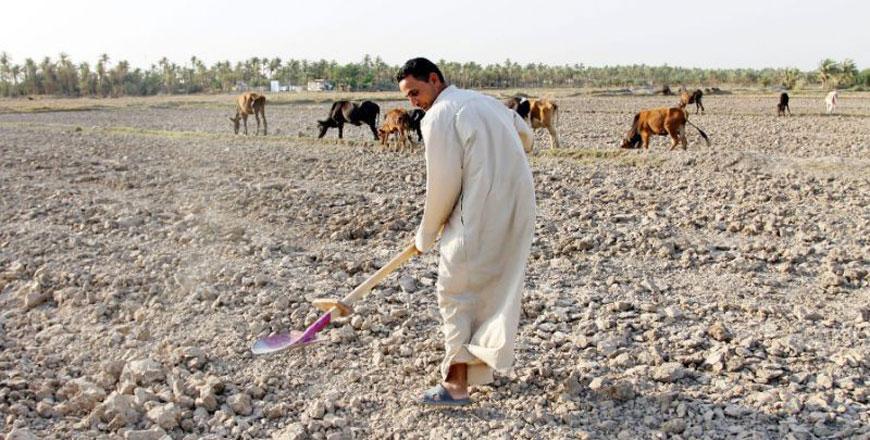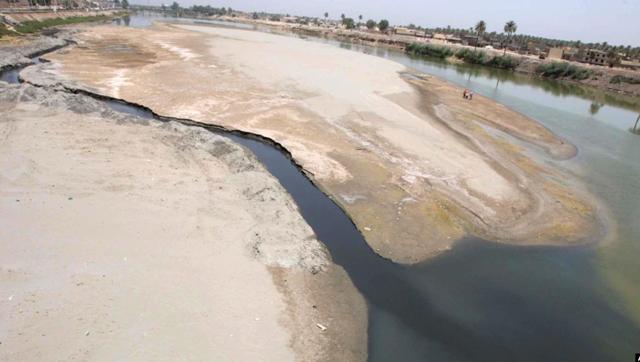You are here
Cultivated areas halve in Iraq as drought tightens grip
By AFP - Aug 04,2018 - Last updated at Aug 04,2018

An Iraqi man uses a shovel on a dry field in an area affected by drought in the Mishkhab region, central Iraq, on July 2 (AFP photo)
BAGHDAD — Areas under cultivation in Iraq have halved this summer compared to last year due to a drought that has led to a ban on water intensive crops, the government said.
“If we take the cultivated area for 2018, it is down 50 percent compared to 2017”, Deputy Agriculture Minister Mahdi Al Qaisi told AFP.
In an unprecedented move, the government in June suspended farming of rice, corn and other cereals that require major irrigation.
Losses for families long dependent on rice production will reach 34 million euros ($39 million) this year, according to the authorities.
The staple usually yields 100,000 tonnes per year.
The drought has also hit livestock, with herds in southern Iraq dwindling by 30 per cent, as cattle die of thirst or are sold for meat in greater volumes than usual.
In the southern province of Zi Qar, more than 400 farming families have left their villages to settle or roam in better irrigated areas, according to local officials.
While Iraq is often known as the “land of two rivers” — the Euphrates and Tigris cross its territory — the country’s water resources have diminished in recent years.
Reservoirs are at around 10 per cent of their capacity.
Beyond this year’s dramatic lack of rain, experts say a central reason for Iraq’s drought is the regional sharing of water resources.
Neighbouring Turkey and Iran have in recent years both rerouted cross-border water sources they share with Iraq.
Related Articles
NASIRIYAH — Iraq’s Tigris and Euphrates rivers have witnessed a sharp decrease in their levels in the south of the country, officials said o
NASIRIYAH, Iraq — Some 1,200 Iraqi families have been forced out of southern marshes and farmlands over the past six months, a local officia
BAGHDAD — Iraq on Saturday asked Ankara to increase the flow of water downstream along the Tigris and Euphrates rivers, as both countries fa

















